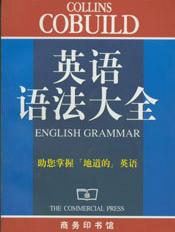牛津实用英语语法-第72章
按键盘上方向键 ← 或 → 可快速上下翻页,按键盘上的 Enter 键可回到本书目录页,按键盘上方向键 ↑ 可回到本页顶部!
————未阅读完?加入书签已便下次继续阅读!
Don’t let’s be alarmed by rumours.
(译文同上。)
通过 let us/let’s说话人可以催促对方以某种方式行事,或者宣布希望对方接受的某一决定,或者表示一种建议。(另参见第289节。)
C 第三人称祈使句
形式
let him/her/it/them+不带to的不定式(另参见第322节):
Let them go by train.
叫他们坐火车去吧。
但这在现代英语中并不是很普遍的形式。下面这种说法要普遍些:
They are to go/must go by train.
他们应该/必须坐火车去。
这一祈使句的否定式 let him/her/them+ 不定式的否定式不用于现代英语中,应当用 must not或 is/are not to来代替:
They must not/are not to go by air.
他们不能乘飞机走。
?
'Amber demo'
282 其他表示命令的方式
?
A 对第三人称的命令用主语 + shall结构(用在书面英语中)shall可用于非常正式的规章文书中,这种规章通常在一定时期内有效。这类结构常常用被动形式(参见第234节):
The Chairman,Secretary,and Treasurer shall be elected annually.
主席、秘书和司库应每年改选一次。(俱乐部规章)
A record shall be kept of the number of students attending each class.
每次上课的学生人数均应予以记录。(大学条例)
B 主语+will主要用于对第三人称的命令:
When the alarm rings passengers and crew will assemble at their boat sta…tions.
警报响时,旅客与船员必须在各自的位置上集合。(船上的通告)
这是一种正式的、不带个人感情色彩的、断然的命令。这样用的will表明发出命令的人确信他的命令将受到遵循。它主要用于由具有权威的人,如船长、各军种的军官、学校校长、运动队教练等发出的书面指示:
The team will report to the gymnasium for weight…lifting training.
队员应到健身房报到参加举重训练。
注意:如果把Will挪到主语前面,就把命令变为请求了。在口头命令中可以使用 you will:
You will not mention this meeting to anyone.
你不得向别人提及这次会议。
用must较普遍而且有礼貌:
You must not mention this meeting to anyone.
你不能向别人提及这次会议。
C 命令常由must表示,意思是某一动作是对方的义务:
You must not smoke in the petrol store.
你不能在汽油库里抽烟。
Passengers must cross the line by the footbridge.
旅客必须从天桥过马路。
Dogs must be kept on leads in this area.
本区内的狗必须拴起来。
D 指示或命令可以由be+不定式结构来表示:
You are to report for duty immediately.
你必须立即去报到接受任务。
The switchboard is to be manned at all times.
任何时候电话总机那儿都应有专人在岗负责。
E 在书面指示中可以用may not表示禁令:
Candidates may not bring textbooks into the examination room.
考生不得携带教科书进入考场。
?
'Amber demo'
283 can/could/may/might I/we?表示请求
?
A can/could/may/might I/we+have+名词/代词
在这些形式中can是最口语化的:
(a)‘Can I have a sweet?’said the little boy.
“我可以吃一粒糖果吗?”小男孩问。
成人用 can I/we?时比用could I/we?的语气更自信。
could I/we?是最普遍使用的形式:
(b)Could I have a cup of tea?
我能喝一杯茶吗?
Could I have two tickets,please?
请给我两张票,好吗?
may和might要比could更正规一些,但在日常口语和书面英语中都可使用:
(c)May/Might I have a copy of the letter?
是否可以给我这封信的一份副本?
用间接引语表示这类请求时,常用ask(+间接宾语)+for+宾语:
The little boy asked(me)for a sweet.
小男孩(向我)要一块糖。
He asked for a copy of the letter.
他要这封信的一份副本。
但上面的(c)也可用下面这种方式表示为间接引语:
He asked if he might have a copy of the letter.
B can/could/may/might I/we+动词
关于它们之间的区别请见上述A。
它们可表示请求允许(参见第131节),但如与特定的动词如see,speak(to)与talk(to)连用时,也可表示一般的要求:
May/Could I see Mr Jones?
我能见见琼斯先生吗?相当于:
I would like to see Mr Jones.
我想见见琼斯先生。
用间接引语表示这一类的请求时,可用ask to see/to speak to等:
I asked to see Mr Jones.
我要求见琼斯先生。
但不能在ask之后再加名词/代词,这样会造成含义上的变化。(参见第243 B。)
在日常口语中也可以说ask for+ 姓名等。特别是用于转述一次电话交谈时:
Caller:Could I speak to the secretary,please?
打电话者:劳驾,我找秘书讲话。相当于:
She asked for the secretary/to speak to the secretary.
她找秘书/要跟秘书说话。
C do you think/I wonder(ed)/was wondering if可位于could/ might I/we之前。有了这一类前缀成分,语气变得更谦恭或缺少自信:
I wonder/was wondering if I could have tomorrow off?
我不知道能不能明天请个假?
Do you think I could speak to the secretary?
我是不是可以和秘书谈谈了?
请注意,动词由疑问语序变成了陈述语序。(参见第104节。)
?
'Amber demo'
284 could/will/would you?等表示请求
?
带有星号的各形式请见下面K中的注释。
A could you?* 是一种非常有用的表示请求的形式:
Could you please show me the way?
请您给我指一指路,好吗?
加上possibly则可以表示说话人的要求是有所逾越的:
Could you possibly lend me £500?
你能否借给我500英镑?
couldn’t表示说话人希望得到比对方刚才表示的较为有利一些的回答:
—I can’t wait.
—Couldn’t you wait five minutes?
—我不能等了。
—你不能等五分钟吗?
you couldn’t…could you?可用来表示一种成功希望不大的请求:
You couldn’t wait five minutes,could you?
你不能再等五分钟,是吗?
You couldn’t give me a hand with this,could you?
这事你帮不了我,是吗?
(在以上两种情况说话人并不真的预期能得到满意的回答。)
B will/would you *(please)?形式:
Will/Would you please count your change?
请点一点找给你的钱好吗?
would you(please)与could you的意思是同样的。
will you有命令的含义,因此不够礼貌。
will/would you可位于一个短语之后:
Shut the door,will you?
把门关上,好吗?
但这种形式只能用于非常友好、随便的场所。否则就会显得很无礼。
will/would也可用于对第三人称的请求:
Would Mrs Jones,passenger to Leeds,please e to the Enquiry Desk?
去往利兹的旅客琼斯夫人请到问讯处来,好吗?
Will anyone who saw the accident please phone this number…
目睹事故发生者请拨这个电话号码……(警方通告)
C you’ll…won’t you?是一种劝导性的请求,主要用于亲朋好友之间:
You’ll write to me,won’t you?
你会给我写信的,是吗?
D would you mind* +动名词(参见第263节):
Would you mind moving your car?
请您移动一下您的车,您不会介意吧?
E perhaps you would表示说话人自信另一方将答应其请求。它通常不用于谈话或信件的开头,但可以在稍后使用:
Perhaps you would let me know when your new stock arrives.相当于:
Please let me know when your new stock arrives.
新货到达时请通知我。
F if you would…是一种非常有用的请求形式。这是英语口语中一种例行的纯属礼貌性质的请求,说话人确信他的请求会得到答应:
If you’d fill up this form/take a seat/wait a few minutes.
请填写这份表格/坐/等几分钟。(在办公室)
If you’d sign the register/follow the porter.
请在登记本上签名/跟服务员走。(在旅馆里)
这种请求中常加上just用来表示所要求做的事是很简单、容易的:
If you’d just put your address on the back of the cheque.
请在支票背面写下你的地址就可以了。(在商店)
G would you like to…?也是一种表示请求的形式:
Would you like to take a seat?相当于:
Please take a seat.
请坐!
H I should/would be very grateful if you would…是一种王要用于信函中的正式的请求形式;也可用于口语中:
I should be very grateful if you would let me know if you have any vacan…cies.
如能通知我是否有空缺我将十分感谢。
I Would you be good/kind enough to keep me informed?
请随时告诉我一些情况,好吗?
Would you be so kind as to keep me informed?
(译文同上。)
J I wish you would也是一种表示请求的形式,有时含有说话人认为对方本应该已经帮助他或本应已提出要给予帮助的意思(参见第301节):
I wish you’d give me a hand.
我希望你能帮我一下。
K 带有星号的 would和 c






